
Food is my business. Not just food—I am not a chef; I can’t make my tiramisu presentable or my own puff pastry dough from scratch—but our (Wilson & my own) passion is in teaching others the importance of knowing where food comes from and how to preserve it for future use.
Maybe you’ve thought some of these:
The problem is bigger than me.
I don’t want to know.
But it tastes so good.
I don’t have time.
I don’t know how.
If you have (and I have), then I would like for you to consider four areas of food ethics. These four things will totally change the way to see–and taste–what’s on your plate.
Ideology
My business is to know the food business. I can tell you about the seed monopoly in Africa, the child slavery engrained into the cacao (chocolate) trade, and the decimation of rain forests and endangerment of animals resulting from overproduction of palm oil. Whole books could be written about how our country is shacking up with the Chinese food system and what havoc that wreaks on the environment and our health.
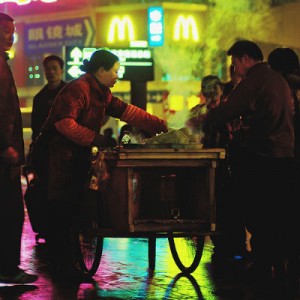
Food Ethics
It’s hard to separate ideology from ethic; if you believe in something you must live it out in practice or it could be argued that you never truly believed it. Beyond my abhorrence for human rights abuses; beyond my distaste for the Second Great Land Grab in Africa for wheat production; even beyond my disgust over chemicals, overuse of antibiotics, poor animal husbandry, and the destruction of the soil and habitat…there is yet one other ethic at play in regards to food production and preservation–food ethics. This, by far, is the most positive one: charity.
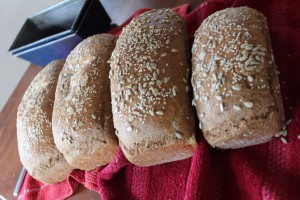
You can only give from your own wealth. Part of our culture’s demise (in my most humble opinion) is that we believe charity can be extracted by force. That is not charity, and it creates a vacuum for future charity in those who are paying the bill. Charity must come from the heart and from the abundance therein. Oh, how many times I wanted to help in a situation but was limited by my own resources! Gardening, beekeeping, and animal husbandry means that you have extra produce, honey, or eggs to share with a hurting neighbor. Even a bouquet of flowers can change someone’s life.
When we first moved to Montana, we ended up in a poor financial situation that nearly destroyed our sense of hope. It was all we could do to put food on the table; it often got picked from the garden that day for that night’s dinner. Our living conditions were very sad (probably dangerous but I don’t want to think about that), and it felt as though the walls were closing in about us. An avid flower gardening friend gave me a bouquet, her first bouquet of the spring. Hope bloomed anew—it was better than a basket of produce for its affect on my soul. She gave to me from her abundance and I will never, ever forget it.
Just as producing your own food creates abundance, so does the art of food preservation. A shelf of homemade jam makes a thoughtful gift—even at the last minute! A jar of homemade sauerkraut or elderberry tincture, or a jar of oregano-infused oil can bless someone suffering from a long, sick winter. When we create, let’s create in abundance so that through that abundance we can bless others around us.
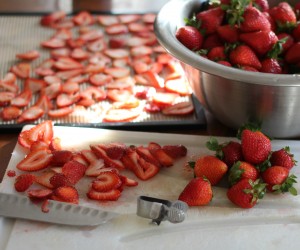
Provision
Learning to preserve, learning to have the First Bank of Pantry Savings for occasional withdraws gives your family security. Through rumors of layoffs, natural disaster seasons, or personal crisis like illness, your family can have food on the table. The reasons for food insecurity are numerous. The answer is often as simple as putting a little aside every time when times are good. Buying extra of something on sale that can be preserved, buying in bulk, starting a garden, or potting herbs for the dehydrator. These skills have a compound effect. You grow and learn (sometimes through mistakes) during the good times, because you don’t have a margin for error in the bad ones.
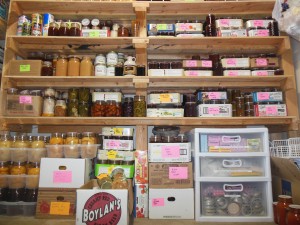
Palette
Beyond ideology, ethics, or even provision, I can tell you a few other things from this business of food. I can tell you about how a real potato out of your garden will actually be juicy. I can share a firsthand account about the rainbow of colors you can find in a carrot or radish from an Heirloom seed company. Oh, and there’s nothing that compares to a home-grown, home-dehydrated strawberry in your January bleary-eyed oatmeal, which completely transforms your entire day into the hopeful wishes of a coming springtime. The “I did it myself” joy of baking, canning, or salt-curing is only surpassed by the actual flavors themselves; every bite is like a gold foily star of accomplishment and every bite awakens your senses.
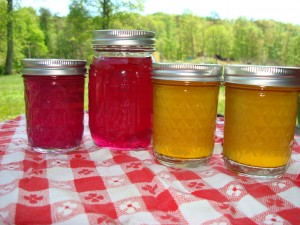
It isn’t all ideological about transforming the modern food system. It isn’t all ethical about the human rights abuses and ecological abuses that take place for our Nestle Crunch impulse buy at the checkout counter. Yes, it is about those things, but oh the perks! Your family is well-prepared as life happens on its own terms, and you will enjoy times of family togetherness around the table, sharing in the hard work and hard-earned flavors that greet you there.


This is great, I really need to start working on my stock of canned foods for winter (and life), financially things are tight at the moment so there’s not margin for error, but still every little bit counts. I look forward to the day when I have so much from my own harvest that I can share with others.
Thanks for sharing.